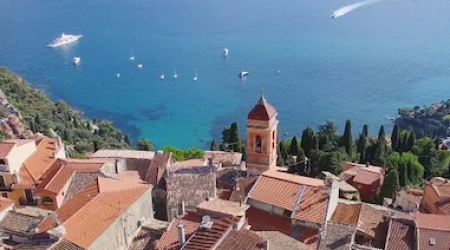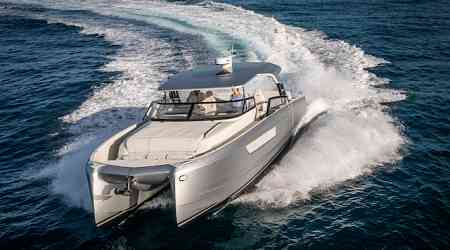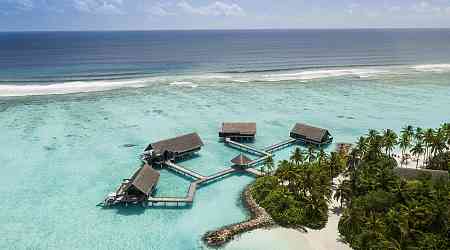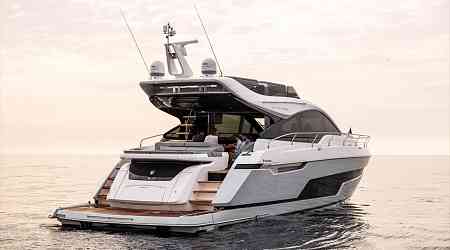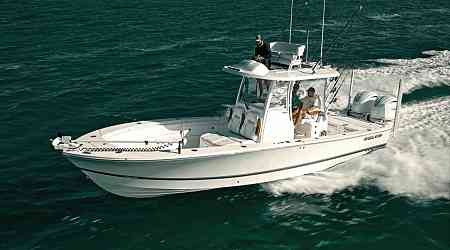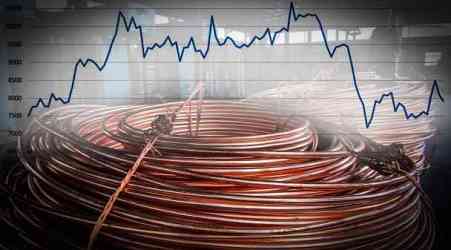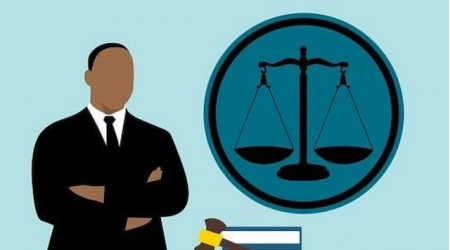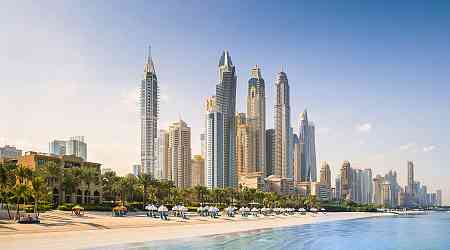Europe Keeps Africa Addicted to Gas
When Russia invaded Ukraine in February, much of Europe was already struggling with energy shortages. The war has made the problem far worse, with sanctions against Russia, Europe’s leading gas supplier, forcing the continent into some of the worst shortages in decades. Today, leaders are increasingly looking to Africa (which has an abundance of gas in Algeria, Egypt and Senegal) to fill the gap — even as the continent has taken important steps toward renewable energy. Today’s Daily Dose looks at a brewing conflict.
– with reporting by Jessica Moody from London
A Gift For You
The shoe with the 61,000-person waitlist is back!
If you missed them the last time around, the sneakers we can’t get enough of are back - and just in time for summer! These all-season low-tops are OZY’s favorite look for dressing up or down. But don’t wait around, these comfy kicks fly off the shelves and won’t be around for long!
Grab a pair with our exclusive code, OZY20, landing you 20% OFF. This special offer is just for OZY readers.
Europe has a problem

 Biting the bullet
Biting the bullet
Russia’s invasion of Ukraine sparked some of the most far-reaching sanctions ever deployed by the West, targeting imports and exports of commodities from Russia, including oil and gas. In March, the European Union announced plans to reduce gas imports from Russia by two-thirds, before later announcing it had banned all oil imports from Russia arriving by sea. The impact on energy supplies has been worsened by Russia’s imposition of a rule that gas must be paid for in rubles, leading to payment disputes with EU states and a further slashing of exports to Europe.
 Winter worries
Winter worries
The shortages could get worse, particularly in winter when demand increases. The End Fuel Poverty Coalition forecasts that 8.5 million people in the U.K. will be living in fuel poverty by the end of 2022, up from 6.32 million in April. Russia may also inflame the situation, previously threatening to stop flows of natural gas through the Nord Stream pipeline to Europe. In response to these threats, European leaders have made a frantic push to diversify oil and gas supplies before shortages become even more acute.
5 STARS FOR COMFORT
No one likes breaking in a new pair of shoes. With Cariuma’s broken-in-out-of-the-box feel, you’ll be sure to recommend them to friends! Planning on walking around town this summer? Make sure you check out their vast range of colors, prints, and exciting limited edition collabs - they have a style for every look!
Excited to try them? Get 20% OFF at checkout with your personal code, OZY20. This special offer is just for OZY readers.
Africa’s resource curse

 Looking to the south
Looking to the south
According to the International Energy Agency, more than 5,000 billion cubic meters of natural gas have yet to be developed in Africa. Traditionally, such resources have not been extensively used by Europe, with the EU importing just 8% of its gas from Algeria and 2% from Nigeria in 2021. But this is likely to change. “Fossil fuel developments in Africa have been stuck for a long time, but now with the war they have got increased interest from Europe,” said Tal Harris, international communications coordinator for Greenpeace Africa, to OZY.
 The gas giants
The gas giants
“There is a reconfiguring of energy geopolitics,” said Saliem Fakir, executive director at the African Climate Foundation, who notes that in recent months there has been an uptick in European interest in Algerian, Egyptian and West African gas supplies. Italy has already signed deals with Algeria and Egypt to increase its gas imports by 9 bcm and 3 bcm, respectively. The deal with Algeria represents a 40% increase in its gas imports from that country. And German Chancellor Olaf Scholz visited Senegal in May, where he pledged to help develop natural gas resources.
 Will it work?
Will it work?
These projects are unlikely to provide an immediate solution to Europe’s energy woes, however. “In terms of a short-term solution to Europe’s energy problems, this is not going to be the case,” said Anja Berretta, head of energy security and climate change in sub-Saharan Africa at Konrad-Adenauer-Stiftung, a think tank associated with Germany’s Christian Democratic Union party. Beretta alluded to the infrastructure challenges associated with exporting African gas to Europe. Existing pipelines only connect Algeria to Europe, and while additional pipelines are being built, these projects will take time to come to fruition. Some undeveloped African resources could take around 15 years to come online, Beretta cautioned.
Climate hypocrisy?

 Mixed messages
Mixed messages
Europe has historically shunned Africa’s fossil fuels, ostensibly out of concerns for climate change, with many of its leaders pledging at COP26 in 2021 to stop financing new fossil fuel projects altogether. But this attitude has undergone a seismic shift since energy shortages in Europe began to bite. “Investments in fossil resources had really slowed because of anticipation of intensifying action on climate,” said Scott Foster, former director for sustainable energy at the United Nations Economic Commission for Europe. “But attitudes towards fossil fuels have moved because of nearer-term concerns about security of supply and security of price resulting from the war in Ukraine.”
 Neglected developments
Neglected developments
Among nations that have committed to reaching net zero emissions by mid-century are 12 African countries responsible for around 40% of Africa’s current emissions. But there are many obstacles to meeting these objectives, according to Fakir, including low investments because of COVID-19 — a problem exacerbated by the war in Ukraine. “The energy crisis in Europe will be another factor that can potentially delay the uptake of renewables in Africa,” he said.
 Vindicated
Vindicated
The new European interest in fossil fuel projects will embolden African leaders who have long been reluctant to shift to renewable energy. “Even prior to the invasion there was a sense that they were being asked for too much,” said Julian Wright, the U.K.’s regional climate adviser for West Africa. “The invasion has given weight to the argument that they have been making.” Verner Ayukegba, senior vice president of the African Energy Chamber, said that African OPEC members had been worried about the global shift to clean energy because of their dependence on hydrocarbons. Today, they’re relieved. “For them this is definitely vindication,” Ayukegba said.
WATCH JIM CRAMER
on The Carlos Watson Show!
A different way

 Renewable options
Renewable options
A less controversial option might be for Europe to rely more heavily on renewable energy. Europe has set targets for ensuring 40% of its energy supply comes from renewable sources by 2030. Renewables are already widespread in the region, with Germany and the Netherlands relying on wind for as much as one-fifth of their power supply. Funding in the sector is rising, too. Germany has pledged more than $2001 billion to bring forward its target of being 100% dependent on renewable energy by a decade, largely triggered by a desire to reduce dependence on Russian fossil fuels.
 Not so fast
Not so fast
But a shift to total reliance on renewable energy will likely take time, and is unlikely to be an immediate solution to the current energy crisis. The Atlantic Council argues that the E.U. began a major transition to green energy two decades ago but still has a long way to go, with only 20% of energy coming from wind and solar and 13% from hydropower in 2020. Supply chain challenges, a lack of political will and bureaucracy have delayed the construction of new renewable energy supplies.
 What can be done?
What can be done?
It is unlikely that a total shift to renewables or a reversion to fossil fuels will resolve Europe’s energy woes. Instead, the best solution is likely to be a combination of the two, with upticks in the use of renewable energy supported by persistent use of fossil fuels, particularly gas, which is increasingly being designated as a transitional “sustainable ” fuel. The concern for renewable energy advocates like Fakir, however, will be that the ongoing use of fossil fuels will reduce the overall interest in moving toward cleaner energy. Africa could lose out in the long run. “You can see where this lobbying is going,” lamented Fakir.
Best last minute News headlines from Your Country and inborn language
Yachts News | Discover the Exclusive World of Yachts
Yachts Listings for Sale and Charter
immediate for delivery New Exclusive Hyper, Mega, Classic and Super sports Cars Crypto Coins for FREE when use this link






















